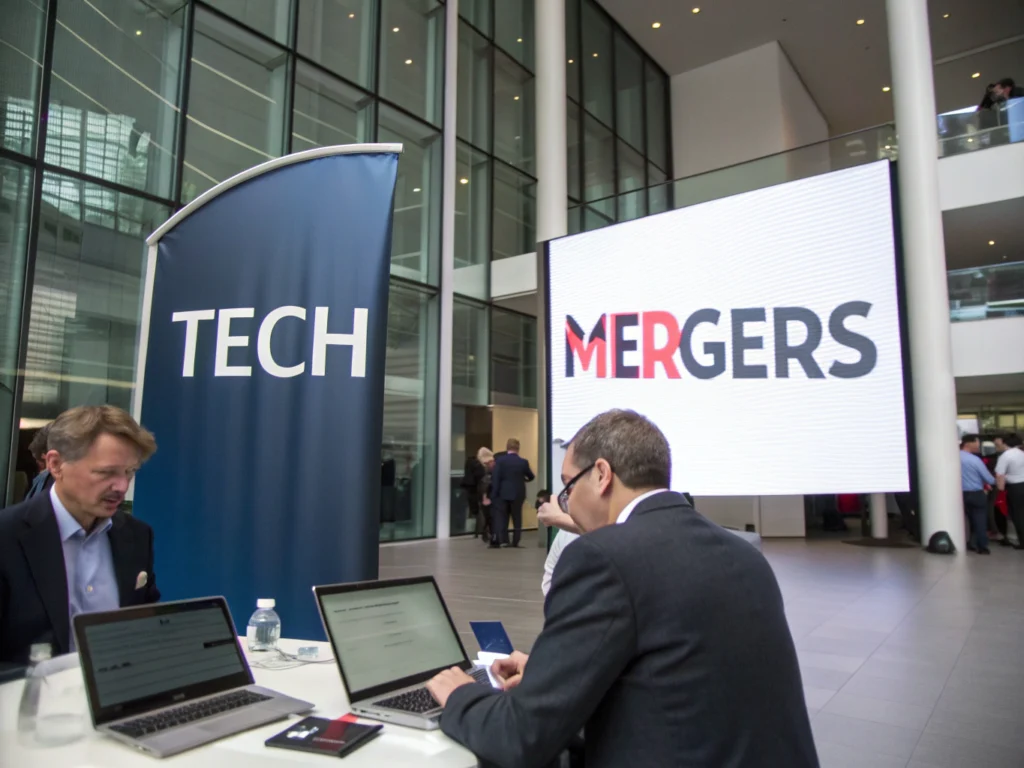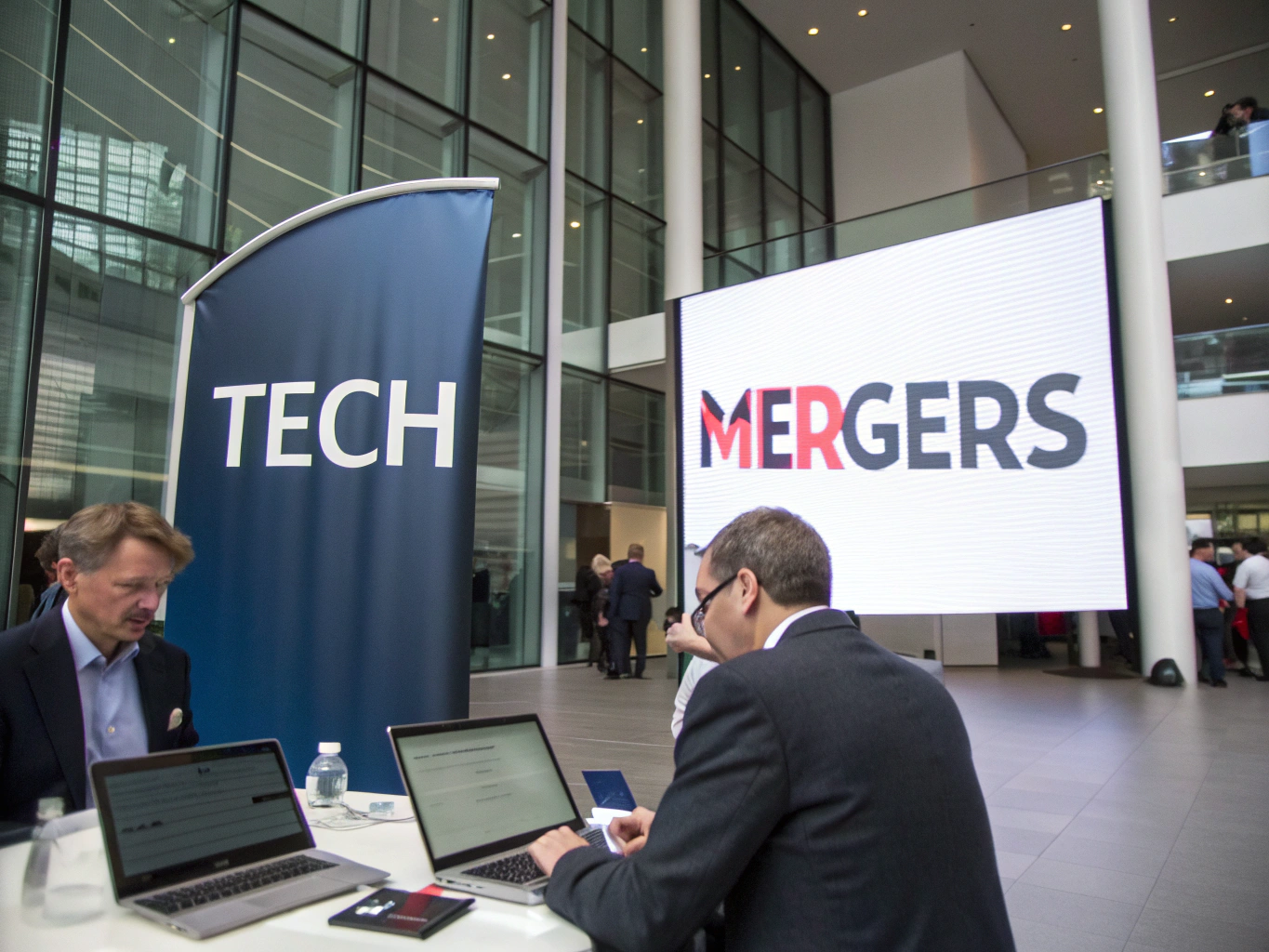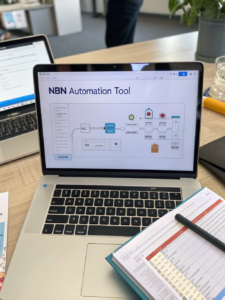Impact of Tech Mergers and Acquisitions on Markets

Navigating the Shifting Sands: What’s Driving the Latest Tech Mergers?
Are you watching the tech landscape with a mixture of excitement and confusion? In the past year alone, we’ve witnessed a surge in significant tech mergers and acquisitions, reshaping entire industries. But beyond the headlines – the multi-billion dollar deals and the prominent logos – what truly fuels this wave of consolidation? Tech Mergers aren’t just about growth; they signal deeper shifts in technological capabilities, market dominance, and the evolving demands of consumers. This isn’t just a fleeting trend; it’s a fundamental restructuring of the digital economy.
Key Concepts & Trends

The current wave of tech mergers is being propelled by several interconnected trends. Firstly, the rise of Artificial Intelligence (AI) is a powerful catalyst. Companies are strategically acquiring those possessing cutting-edge AI models, talent, and data sets to integrate intelligence into their existing products and services. Consider the acquisition of Figma by Adobe – a move that strengthens Adobe’s position in design with powerful AI-driven features. Another significant trend is the convergence of software and hardware. Companies are seeking to offer more integrated solutions, blurring the lines between traditional tech categories. This is evident in the increasing number of tech giants developing their own chips and exploring edge computing.
The metaverse, while still evolving, continues to influence acquisitions in areas like virtual reality (VR), augmented reality (AR), and blockchain technologies. Companies are betting on long-term potential, and these acquisitions aim to secure a foothold in these nascent but potentially transformative spaces. Furthermore, the focus on cybersecurity is driving acquisitions of specialized security firms, as businesses increasingly recognize the paramount importance of protecting their data in a complex threat landscape. We also see a growing trend of smaller, innovative startups being acquired by larger corporations looking to inject agility and new ideas into their operations. This allows established players to quickly adopt novel technologies that would take years to develop internally.
Data & Market Insights
According to a recent report by Gartner, the global M&A market in the technology sector is projected to reach $400 billion in 2024. This signifies a substantial increase from previous years and highlights the active nature of tech mergers. A study by McKinsey found that over 70% of tech companies surveyed were actively considering acquisitions to accelerate growth and innovation. This data underscores the strategic importance of mergers and acquisitions in today’s competitive landscape.
[Insert a visually compelling infographic here showcasing the growth of tech M&A deals over the past 5 years, with key statistics on deal value and sector focus.]
For example, the acquisition of Slack by Salesforce for $27.7 billion was a landmark deal that demonstrated the value of integrating collaboration tools with CRM platforms. This signaled a broader trend of companies consolidating their software suites to offer more comprehensive solutions. The increasing investment in cloud computing is also driving acquisitions related to cloud infrastructure, security, and managed services. These trends are not isolated; they are interconnected and collectively shaping the future of the technology industry.
Smarter Strategies & Alternatives
While the allure of joining a larger entity can be tempting, smaller businesses and startups can also navigate this evolving landscape strategically. One alternative to seeking acquisition is strategic partnerships. Collaborating with other companies can provide access to new markets, technologies, and resources without the complexities of a full merger. Another approach is to focus on building a highly specialized niche and becoming a sought-after acquisition target yourself.
For investors, diversifying portfolios beyond established tech giants and exploring promising startups through venture capital or angel investing can offer higher potential returns. Utilizing tools like Crunchbase and PitchBook can provide valuable insights into emerging companies and potential investment opportunities. Furthermore, understanding the regulatory environment surrounding tech mergers is crucial. Antitrust scrutiny is increasing, and investors need to be aware of potential roadblocks.
Use Cases & Applications
The impact of tech mergers is visible across numerous sectors. In healthcare, acquisitions are facilitating the integration of AI-powered diagnostic tools and telehealth platforms, leading to improved patient outcomes. In finance, the consolidation of fintech companies is driving innovation in areas like digital payments and lending. The gaming industry has seen numerous acquisitions, with larger players acquiring smaller studios to expand their game libraries and talent pools.
Consider the example of Microsoft’s acquisition of Activision Blizzard. This deal not only expands Microsoft’s presence in the gaming market but also provides access to a vast library of popular game franchises. These strategic moves often lead to enhanced product offerings, increased market share, and greater innovation.
Common Mistakes to Avoid
One common mistake companies make during or after a tech merger is neglecting cultural integration. Combining different organizational cultures can be challenging, and a lack of proper integration can lead to employee attrition and decreased productivity. Another pitfall is failing to clearly define the strategic goals of the merger. Without a clear vision, the combined entity may struggle to achieve its full potential.
For investors, a common error is overlooking the integration risks associated with acquisitions. Simply paying a premium for a company doesn’t guarantee success. Thorough due diligence and a clear understanding of the integration plan are essential. Ignoring regulatory hurdles and antitrust concerns can also lead to significant delays or even the cancellation of a deal.
Maintenance, Security & Long-Term Planning
Post-merger, robust cybersecurity measures are paramount. Integrating disparate IT systems can create vulnerabilities, making a comprehensive security audit and the implementation of unified security protocols essential. Long-term planning should focus on leveraging synergies, optimizing operations, and fostering a unified company culture. Scalability is another critical consideration, ensuring that the combined infrastructure can support future growth. Compliance with evolving data privacy regulations like GDPR and CCPA must also be a priority.
Summary & Key Takeaways
The current wave of tech mergers is a powerful indicator of the ongoing evolution of the technology landscape. Driven by trends like AI, the convergence of software and hardware, and the increasing importance of cybersecurity, these deals are reshaping industries and creating new opportunities. While strategic partnerships and niche specialization offer alternatives, understanding the dynamics of acquisitions and navigating the potential challenges is crucial for both businesses and investors.
Ready to delve deeper into the world of tech mergers and their impact? Share your thoughts and experiences in the comments below! Have you witnessed any significant tech mergers recently? [Link to related article: Tech Mergers]
FAQs
Is it too late to invest in crypto? While the crypto market has experienced volatility, many experts believe that the underlying technology has long-term potential. However, it’s crucial to conduct thorough research and understand the risks before investing.
How can small businesses use AI? Small businesses can leverage AI through readily available tools for tasks like customer service chatbots, marketing automation, and data analysis.
What tech stacks scale best? Cloud-native architectures, microservices, and containerization technologies like Docker and Kubernetes are generally considered to scale best for growing businesses.
What are the key regulatory considerations for tech mergers? Antitrust regulations are a major concern, and companies need to ensure their mergers comply with relevant laws to avoid legal challenges.
Share this content:














Post Comment